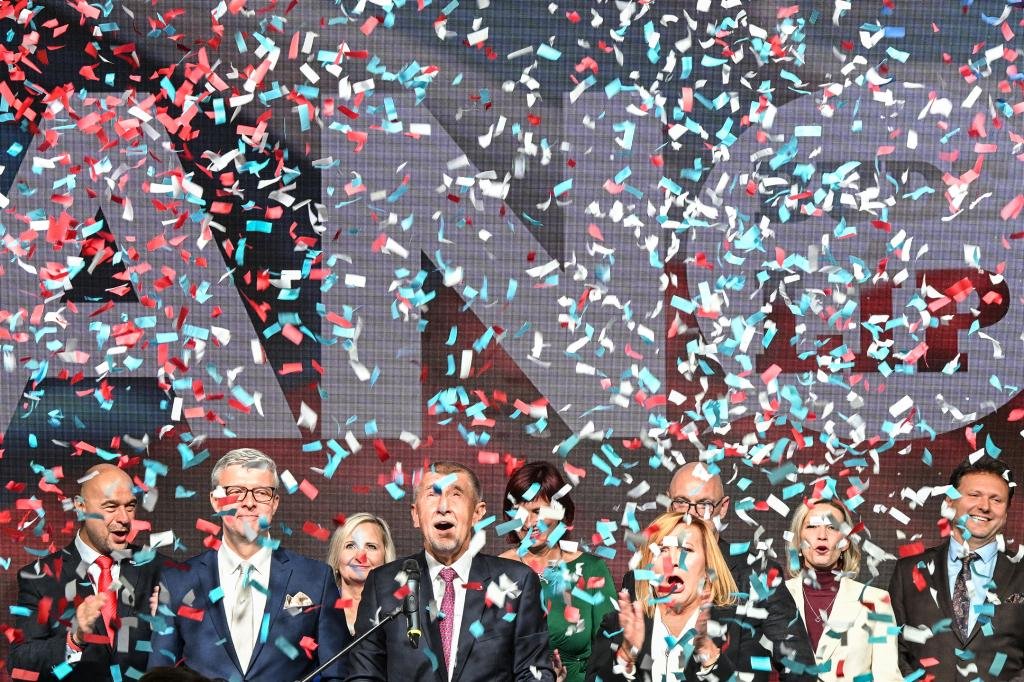
Europe’s newest leader faces tough tests – watch out, America and Ukraine

When citizens of the Czech Republic voted in their country’s crucial parliamentary elections last weekend, they were deciding more than just the future of their democracy.
They were also determining Ukraine’s fate.
The Czech Republic – or Czech Republic – may be a small country in Central Europe, but it serves as a practical front-line state in the standoff between the West and Russia.
It has sheltered hundreds of thousands of Ukrainians and provided vital ammunition to Ukraine.
A sudden shift in Prague’s policy toward Kiev would not be just an abstract European drama: it would upend the logistical and political will that Washington has relied on to keep the Ukrainian resistance alive.
On the morning of voting day, I met a 90-year-old woman walking slowly to the polling station with the help of two canes.
Having lived through the horrors of communism, she is determined to stop the return of “evil.”
The sight of Czech youth succumbing to the temptations of extreme politics makes her “sick and sad.” She hopes they appreciate “the progress we’ve made.”
I thought about her when the results were announced. The Communists were virtually eliminated, as they failed to pass the 5% threshold needed to gain seats in the House of Representatives.
Nearly two dozen other parties joined them in electoral oblivion.
In the end, there was no big surprise. The election went largely as polls predicted.
For many Czechs, this was a relief: the frightening wave of extremism from the far left and far right had never happened.
But beneath this surface, the results tell a more troubling story.
They did not produce a decisive winner. The party that received the largest share of the vote, the Ano movement, is not so much a group driven by a lofty ideology as a vehicle for one man’s ambitions.
Andrej Babiš, the Slovakian-born billionaire who served as prime minister from 2017 to 2021, calls himself a Czech nationalist first.
His rivals criticize him as a populist who is soft on Russia, and his return would undermine Czech support for Ukraine.
This is an oversimplification. Babis’s policy is not ideological; They are transactions.
During Donald Trump’s first term as president, Babiš wore a red MAGA-style baseball cap emblazoned with the slogan “Czech Strong.”
He enjoyed being called the “Czech Trump” and bragged about meeting the man on multiple occasions.
But after Trump’s defeat in 2020, Babis quickly dismissed the MAGA images.
In contrast to Viktor Orban in Hungary, for example, Babis is not a populist conservative.
He was a left-leaning liberal when it was popular.
During his election campaign, he even rejected Trump’s call for NATO countries to raise defense spending to 5% of GDP.
Babis’s real instinct is the politics of grievance.
He saw how inflation, rising taxes, energy costs and austerity are squeezing ordinary Czechs while their government pumps money to help Ukraine.
Asking why the Czechs would pay the price for another country’s war, he tapped into unspoken resentment.
Brussels may scoff, but the message resonates across small towns and rural areas.
His promises were wide-ranging: more money for pensioners, lower taxes, higher wages, and lower energy tariffs.
However, even with all the gifts, Babis was unable to achieve an absolute majority.
His party won 80 seats out of 200, 21 fewer than the number required to form a majority government.
Czech politics were now divided between rival factions.
Babis must somehow build a working majority. His potential partners are two right-wing parties: Drivers for Themselves and the Freedom and Direct Democracy (SPD).
Motorists, newcomers who have opposed the green agenda and cycle lanes in Europe, won 13 seats.
The Social Democratic Party, led by Japanese-born Tomio Okamura, is staunchly anti-EU, anti-immigrant and anti-NATO. These positions terrify moderates and Czech businessmen.
To complicate matters further, Babis still faces a long-running fraud trial over EU agricultural subsidies, and conflict-of-interest laws may force him to give up control of his sprawling business empire.
But those who know him are sure he will find a way to keep his job and He ran the country – if not directly as prime minister, then as the puppet master of a carefully selected agent.
But what about Ukraine? Despite the threat of the election campaign, Babis is unlikely to abandon Kiev.
Czech arms factories have flourished thanks to the supply of weapons to Ukraine, and popular sympathy for Ukrainians – hundreds of thousands of whom have taken refuge in the Czech Republic, which hosts the largest number of Ukrainian refugees per capita in the European Union – remains enormous.
In the final days of the campaign, Babis was forced to tone down his rhetoric on Ukraine.
He may make noises from time to time, but there will be little real change in policy.
This is good news for the West, especially Ukraine and the United States.
The deeper lesson of the election is something Americans know well.
Czech voters turned away from politicians who promised stability and progress but brought them economic hardship and cultural compromise.
Babis’ return is another reminder that voters everywhere turn not to ideology, but to whoever seems to be listening.
But governing is a different game from campaigning.
With no clear majority and no easy allies, Babis will have to temper his populist rhetoric through responsible governance.
Czech democracy has passed another test, but more stringent trials await.
Thirty-five years after the Velvet Revolution that peacefully ended Communist rule, the most pressing question in Czechia is whether the country’s politics can still provide a sense of common purpose, alongside government, to unite a fractured nation.
How Babiš meets this challenge, as he struggles to form a coalition in the coming weeks, should concern more than just the Czechs and Europeans.
Washington must watch, too.













Post Comment